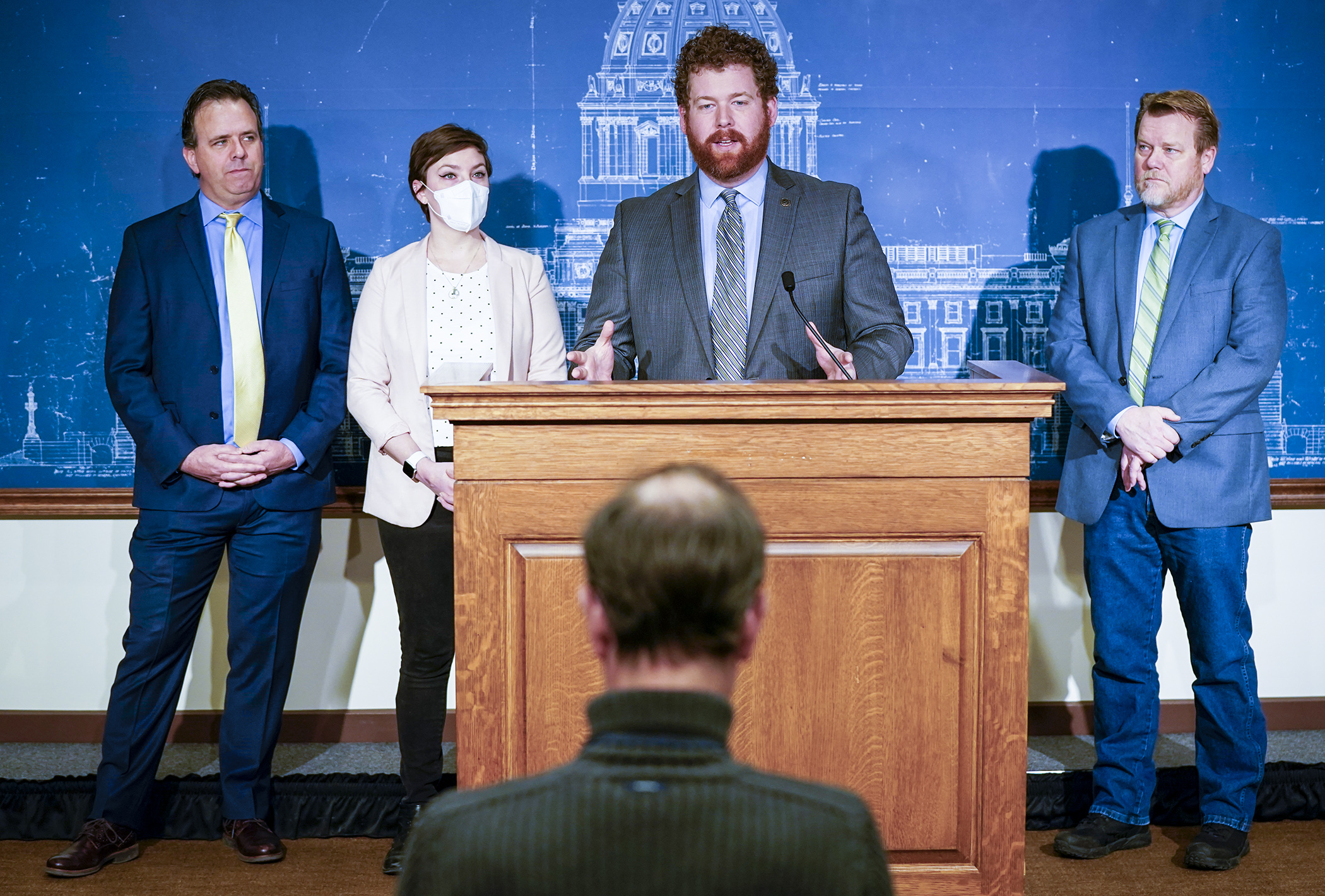Sports betting bill gets out of the gate with first committee approval

Since a 2018 decision by the U.S. Supreme Court, 32 states have authorized some form of sports betting, including the four states that border Minnesota.
If bipartisanship is a barometer, odds are that could change.
HF778 would allow persons at least age 18 to bet on sports, using mobile or brick-and-mortar options. The bill was approved, as amended, 14-4 by the House Commerce Finance and Policy Committee Tuesday and sent to the House State Government Finance and Elections Committee where it is scheduled to be heard March 15.
“This legislation will bring about the most significant change to Minnesota’s gaming laws in many years,” Rep. Zack Stephenson (DFL-Coon Rapids), the bill sponsor, said in a statement. “State lawmakers in the Minnesota House have crafted a thoughtful bill based on respectful consultation with sovereign tribal nations, professional sports teams, experts in problem gaming, and many other stakeholders. This is the year we get sports betting done in Minnesota.”
The fact that Minnesota doesn’t have legal sports betting doesn’t mean sports betting isn’t happening, Stephenson said. There is a robust black market.
“What this bill is about is creating a legal marketplace that will displace that black market and in doing so, provide consumer protection, ensure the integrity of the game and limit money laundering and other illegal activity,” he said.
Sports betting would be permitted at tribal casinos or on mobile apps licensed to tribal entities.
Tax revenue from mobile gaming would go to three specific areas. A portion would go to enforcement, ensuring gaming is fair and doesn’t affect events on the field; 40% would go to the Department of Human Services to address problem gambling; and 40% to youth sports with special emphasis on areas with high levels of juvenile crime.
Testifiers and some committee members expressed concern about the mobile option for 18-, 19- and 20-year-olds because studies have shown sports betting and online betting are more related to problem gambling.
They are especially addictive to young gamblers, said Ryan Hamilton, government relations associate with the Minnesota Catholic Conference. This bill effectively puts a bookie in every living room, dorm room and in the pocket of every high school senior, he said.
Rep. Jordan Rasmusson (R-Fergus Falls) unsuccessfully offered two amendments. One would require an in-person component to mobile apps, the other would increase the minimum age for mobile gaming to 21 to match almost every other state.
“This is a common-sense protection that the vast majority of other states have adopted to help prevent problem gambling, especially for young adults,” Rasmusson said.
Stephenson shared the concern, but said he was worried about young adults gambling on the black market rather than in a legal, regulated one. He hopes to have time to build in safeguards as the bill goes to additional committees.
Sponsored by Sen. Roger Chamberlain (R-Lino Lakes), the companion, SF574, awaits action by the Senate State Government Finance and Policy and Elections Committee.
Related Articles
Search Session Daily
Advanced Search OptionsPriority Dailies
Speaker Emerita Melissa Hortman, husband killed in attack
By HPIS Staff House Speaker Emerita Melissa Hortman (DFL-Brooklyn Park) and her husband, Mark, were fatally shot in their home early Saturday morning.
Gov. Tim Walz announced the news dur...
House Speaker Emerita Melissa Hortman (DFL-Brooklyn Park) and her husband, Mark, were fatally shot in their home early Saturday morning.
Gov. Tim Walz announced the news dur...
Lawmakers deliver budget bills to governor's desk in one-day special session
By Mike Cook About that talk of needing all 21 hours left in a legislative day to complete a special session?
House members were more than up to the challenge Monday. Beginning at 10 a.m...
About that talk of needing all 21 hours left in a legislative day to complete a special session?
House members were more than up to the challenge Monday. Beginning at 10 a.m...